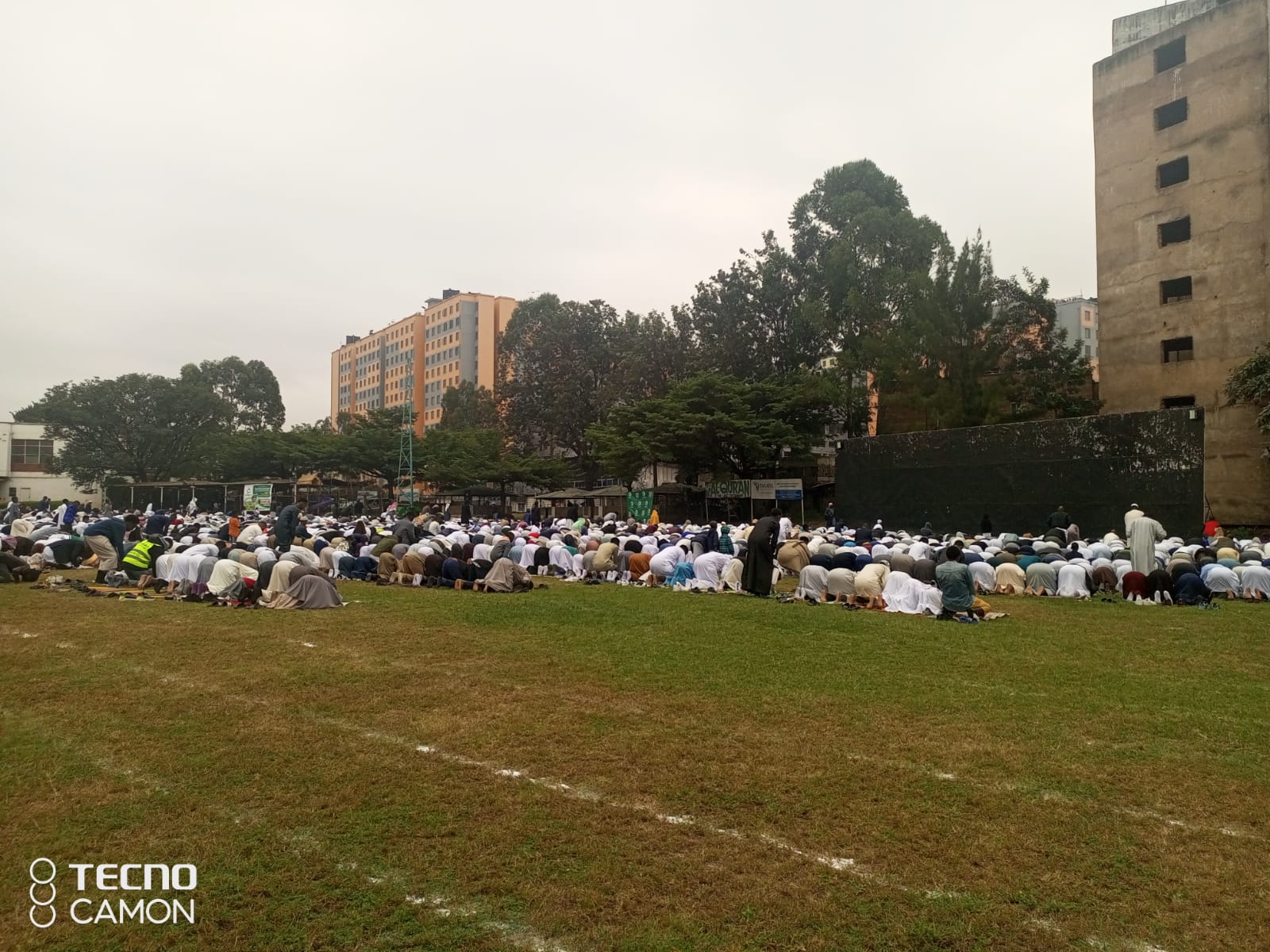Muslim faithful Wednesday gathered in various mosques and prayer grounds across the country to mark Eid Al Adha, the Festival of Sacrifice.
In Nairobi, Sheikh Jamaludin Osman led hundreds of faithful in the Eid prayers at Sir Ali Muslim grounds in Parkroad.
Meanwhile, President William Ruto has conveyed his Eid Mubarak wishes to the Muslim community, across the country as they observe Idd-Ul-Adha.
In his message, the President called on the Muslim faithful to mirror the core values of Idd-Ul-Adha which is a celebration of sacrifice, faith, and obedience to Allah.
He wished the Muslims a blessed day inspired by the spiritual virtues that the day signifies.
Eid Al Adha is one of the most important Islamic holidays celebrated worldwide. It is held at the end of the Hajj pilgrimage and sees family and friends gather for feasts, gift-giving, and prayers.
It commemorates the willingness of Prophet Ibrahim to sacrifice his son as an act of obedience to God.
Animals mostly sheep or goats are slaughtered with part of their meat consumed by the family that offers the animal, while the rest of the meat is distributed to the poor and the needy.
The holiday is observed on the 10th day of Dhu al-Hijjah, the twelfth month of the Islamic calendar.
Difference between Eid Fitr and Eid Adha
According to Sheikh Abu Qatada Salim of Malindi, animals are slaughtered before prayers to mark Eid Fitr while the same happens after prayers during Eid Adha.
He explains that only four species of animals were allowed to be slaughtered including sheep, goats, cattl, camels and sheep should be more than six months of age.
The goat should be one year old while the cattle should be at least two years and the camel should be five years old.
“The animals allowed by law to be slaughtered are in four categories and they should be of age and also not too old or suffering any disability and there are ten days in the calendar,” he said.
He also said that those who had slaughtered before prayers should find alternative animals to slaughter after the Idd Adha prayers.
“This is the most important day in the calendar of Islam and it is the day of slaughtering, it is different from Idul Fitr. During Idul Fitr we slaughter before prayers but in Idd Adha we slaughter after prayers and whoever has slaughtered before prayers should find another animal to slaughter after prayers,” he added.
This he said was following in the footsteps of Ibrahim who in the Quran wanted to slaughter his only son Ismail in order to fulfill God’s dream.
“We are following the footsteps of our father Ibrahim who dreamt that he was slaughtering his son Ismael and he had prepared everything until a voice from God came down ordering him to stop and he gave him a sheep to slaughter. He was happy for Ibrahim for demonstrating faith and loyalty,” he said.
He further urged Muslims to serve humanity in faith and not to please people.
Additional reporting by Dickson Wekesa





